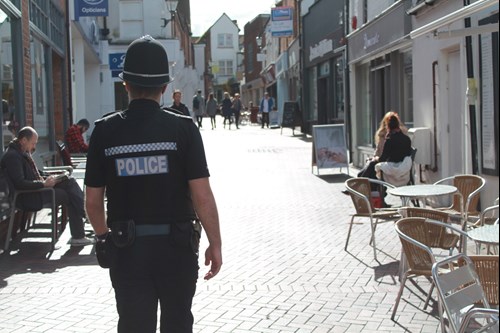Officers shouldn't be 'picking up the pieces' on mental health, says report
11 December 2018

The Police Service is doing a “good job in difficult circumstances” but should not be left to “pick up the pieces of a broken mental health system”, an official report has found.
The report from Her Majesty’s Inspectorate of Constabulary and Fire & Rescue Services said there needs to be a “radical re-think” to find a solution to the national crisis.
HM Inspector of Constabulary Zoë Bellingham, author of “Policing and Mental Health: Picking Up the Pieces” said: “Police officers naturally want to respond and do their best to support vulnerable people when they ask for help. And we found that police officers respond to those with mental health problems with care and compassion.
“But we cannot expect the police to pick up the pieces of a broken mental health system. Over-stretched and all-too-often overwhelmed police officers can’t always respond appropriately, and people in mental health crisis don’t always get the help they need.”
She said the HMICFRS had “grave concerns” about the amount of times police officers are expected to resolve mental health problems, and called for “fundamental change”.
The report found that demand on the police service is increasing, despite the fact that just two percent of people surveyed felt it was the police’s responsibility to respond to mental health calls. Meanwhile, 70% of respondents felt it was the main responsibility of the health services to deal with people with mental health problems.
The report found strong leadership and governance on mental health across most forces. And police officers had a good understanding of how to respond to those with mental health problems and feedback from partner organisations recognised the empathy officers showed in supporting those with mental health problems, it said.
Ms Bellingham added: “People in crisis with mental health problems need expert support – support that can’t be carried out in the back of a police car or by locking them into a police cell. All too often, the system is failing people when they most need help. This is not a problem that the police alone can solve. Other services need to stop relying on the 24/7 availability of the police.”














